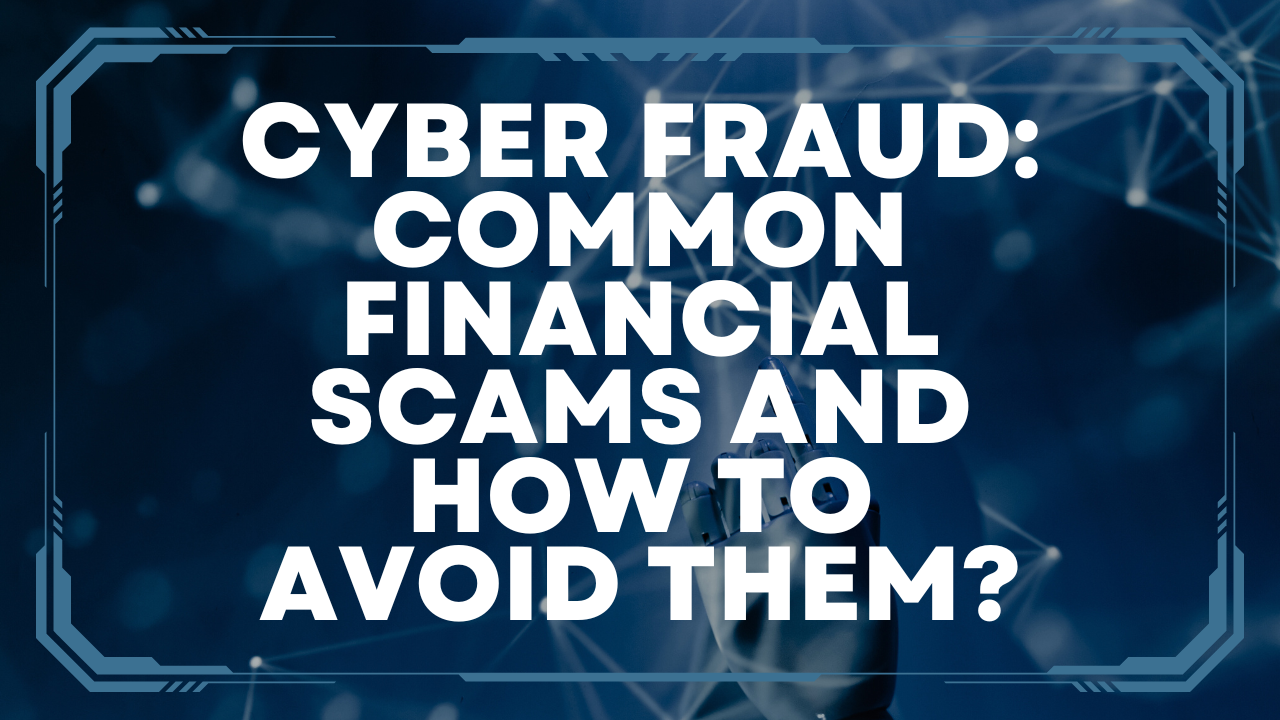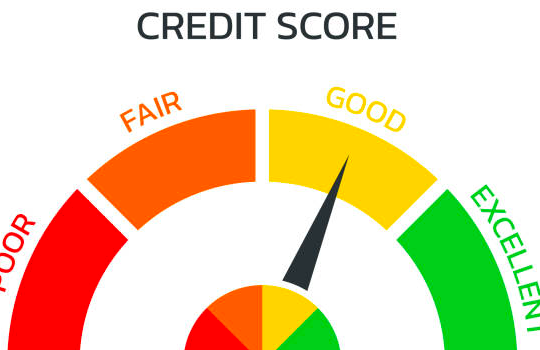Phishing Scams:
Phishing scams involve fraudsters attempting to trick individuals into providing sensitive information, such as passwords, credit card details, or Social Security numbers. Here are some tips to avoid falling victim to phishing scams:
Be cautious of unsolicited communications: Be skeptical of emails, text messages, or calls that ask for personal or financial information. Legitimate organizations usually don’t request such information via email or phone.
- Verify the source: If you receive a suspicious message or call, verify the sender’s identity before sharing any personal information. Contact the organization directly using their official website or phone number to confirm if the communication is legitimate.
- Look for signs of phishing: Pay attention to the language, grammar, and spelling used in the message. Phishing emails often contain spelling mistakes or poor grammar. Additionally, watch out for generic greetings instead of personalized ones.
- Don’t click on suspicious links: Avoid clicking on links in emails or messages from unknown sources. Hover over the link to check the actual URL it leads to. If it looks suspicious, don’t click on it. Instead, visit the website directly by typing the URL in your browser.
- Be cautious with attachments: Don’t open email attachments from unknown senders, especially if they are executable files (e.g., .exe) or macros. These can contain malware that can compromise your computer’s security.
- Use up-to-date security software: Install and regularly update antivirus and anti-malware software on your devices. These programs can help detect and prevent phishing attempts.
Identity Theft:
Identity theft occurs when someone steals your personal information and uses it for fraudulent purposes. To protect yourself from identity theft, consider the following precautions:
Protect your personal information: Safeguard important documents, such as your Social Security card, passport, and financial statements. Only share personal information when necessary and with trusted sources.
- Use strong, unique passwords: Create strong passwords for your online accounts and avoid reusing them across multiple platforms. Use a combination of letters, numbers, and symbols, and consider using a password manager to securely store and generate passwords.
- Be cautious online: Avoid sharing sensitive information, such as your full name, address, or birthdate, on public platforms or social media profiles. Fraudsters can use this information to impersonate you or guess your security questions.
- Regularly monitor financial statements: Review your bank and credit card statements regularly to detect any unauthorized transactions. If you notice anything suspicious, report it to your financial institution immediately.
- Check your credit reports: Request your credit reports from major credit bureaus at least once a year and review them for inaccuracies or unauthorized accounts. Promptly report any discrepancies to the credit reporting agencies.
- Shred sensitive documents: Before discarding documents containing personal information, such as bank statements or credit card bills, shred them to prevent dumpster diving fraud.
Online Purchase Scams:
Online purchase scams involve fraudulent schemes where scammers deceive consumers into paying for goods or services that they never receive. To avoid falling victim to online purchase scams, consider the following tips:
- Shop from reputable websites: Stick to well-known and reputable online retailers when making purchases. Look for secure payment options and ensure the website has a valid SSL certificate (look for “https://” in the URL).
- Research the seller: Before making a purchase from an unfamiliar seller or website, do some research. Look for customer reviews, check their ratings on trusted platforms, and search for any complaints or scam reports related to the seller.
- Be cautious of deals that seem too good to be true: If a deal or price appears significantly lower than what is typically offered, it could be a red flag. Scammers often lure victims with unrealistically low prices to entice them into making a purchase.
- Use secure payment methods: Whenever possible, use secure and traceable payment methods like credit cards or reputable online payment services (e.g., PayPal). Avoid using wire transfers or prepaid debit cards, as they offer little to no recourse if you encounter a scam.
- Read the fine print: Before making a purchase, carefully review the terms and conditions, return policies, and warranty information. Ensure that you understand the seller’s policies regarding refunds, exchanges, and customer support.
- Keep your devices secure: Maintain up-to-date antivirus and anti-malware software on your devices to protect against potential threats. Avoid making online purchases when connected to public Wi-Fi networks, as they may not be secure.
Investment and Ponzi Schemes:
Investment and Ponzi schemes involve fraudsters promising high returns on investments or enticing individuals to invest in fraudulent ventures. Protect yourself from investment scams with these tips:
- Research and verify investment opportunities: Before investing your money, thoroughly research the investment opportunity and the company or individual offering it. Check if they are registered with the appropriate regulatory authorities and review their track record.
- Be skeptical of high returns with low risk: If an investment promises exceptionally high returns with little or no risk, exercise caution. All investments carry some level of risk, and if a deal seems too good to be true, it likely is.
- Seek advice from licensed professionals: Consult with a licensed financial advisor or investment professional before making any significant investment decisions. They can provide guidance and help you evaluate the legitimacy of investment opportunities.
- Understand the investment: Take the time to fully understand the investment, including its risks, potential returns, and underlying assets. Don’t invest in something you don’t comprehend or that seems overly complex.
- Be cautious of pressure and urgency: Beware of investments that pressure you to make quick decisions or claim to have limited availability. Scammers often create a sense of urgency to prevent you from conducting proper due diligence.
- Be wary of pyramid or Ponzi schemes: Pyramid schemes involve recruiting others to invest and make money primarily from recruitment fees, rather than legitimate investment returns. Ponzi schemes use funds from new investors to pay returns to earlier investors. Be cautious of investment opportunities that resemble these structures.
Charity Scams:
Charity scams involve fraudsters posing as charitable organizations or individuals seeking donations for a cause, but in reality, they intend to pocket the funds for personal gain. To avoid falling victim to charity scams, consider the following precautions:
- Donate to well-known and reputable charities: Stick to established and recognized charitable organizations that have a proven track record. Research the charity beforehand to ensure it is legitimate and has a transparent reputation.
- Verify the legitimacy of a charity: Check the official website and contact information of the charity. Look for details like the organization’s mission, programs, and financial information. You can also use resources like Charity Navigator or GuideStar to verify the credibility of a charity.
- Be cautious of high-pressure tactics: Legitimate charities will not pressure you into making an immediate donation or use aggressive tactics. Avoid organizations that make unsolicited calls or send unsolicited emails with urgent requests for donations.
- Don’t share personal or financial information: Avoid providing personal or financial information over the phone, email, or text unless you are certain of the charity’s authenticity. Legitimate charities will not ask for sensitive information like your Social Security number or banking details.
- Research fundraising campaigns: If someone is fundraising on behalf of a charity, independently research the campaign to ensure it is authorized by the charity. Contact the charity directly to verify the authenticity of the fundraiser.
- Be cautious of fake charity websites or imposter scams: Scammers may create fake websites or use similar names to reputable charities to trick people into donating. Double-check the website’s URL, look for security indicators (https://), and verify the website’s legitimacy before making a donation.
Employment Scams:
Employment scams involve fraudulent job offers that aim to steal money or personal information from job seekers. To avoid falling victim to employment scams, consider these precautions:
- Be cautious of upfront payment requests: Legitimate employers will not ask you to pay money as a condition of employment. Be wary of job offers that require you to pay for training, background checks, or equipment before starting work.
- Research the company: Before accepting a job offer, research the company thoroughly. Look for an official website, check their online presence, read reviews, and verify their contact information. Be skeptical if the company has a poor online presence or lacks clear information.
- Avoid unrealistic job offers: Be cautious of job offers that promise extremely high salaries for minimal work or require no experience or qualifications. If an offer seems too good to be true, it probably is.
- Use trusted job platforms: Stick to reputable job search websites or platforms that have security measures in place to vet employers and job listings. Exercise caution when dealing with job offers from unknown or unverified sources.
- Conduct due diligence during the hiring process: Legitimate employers will conduct interviews, ask for references, and request necessary documents. If a job offer is made without any interviews or background checks, it could be a red flag.
- Protect personal information: Be cautious about sharing personal information, such as your Social Security number or bank account details, during the application process. Only provide such information when you are confident in the legitimacy of the employer.
Conclusion:
Financial scams, such as phishing, identity theft, online purchase scams, investment schemes, charity scams, and employment scams, can have severe financial and personal consequences. Protecting yourself requires awareness, vigilance, and caution. Stay informed about common scams, educate yourself about their warning signs, and follow the preventative measures outlined in this guide.
Also Read:
- Need Emergency Funds Quickly?
- Investing In Fixed-Income Instruments For High Returns? Is It The Right Strategy?
- SIP or Recurring Deposit: Which One You Should Choose?
- How to Use NFT Marketplaces for Buying and Selling?




